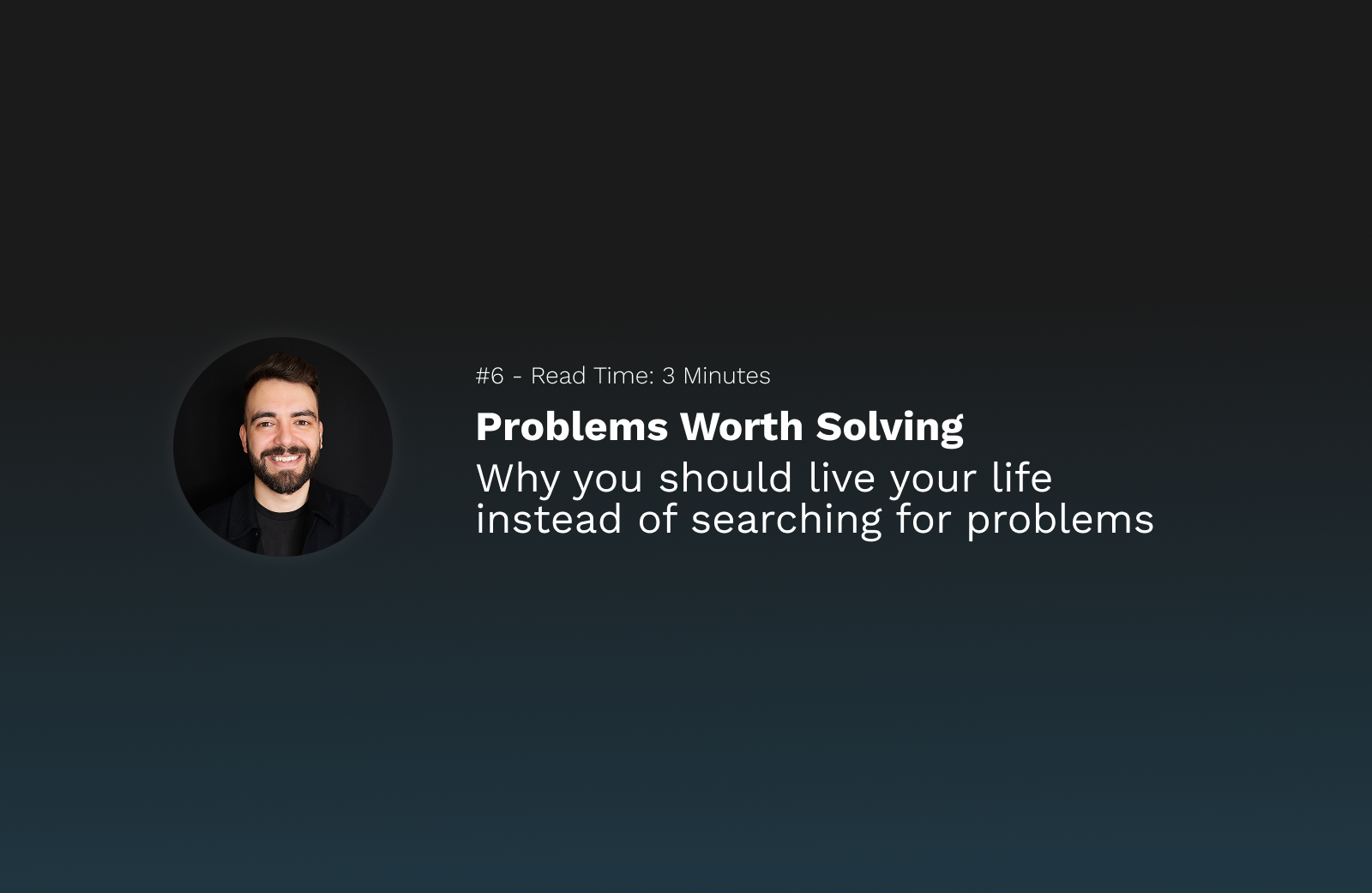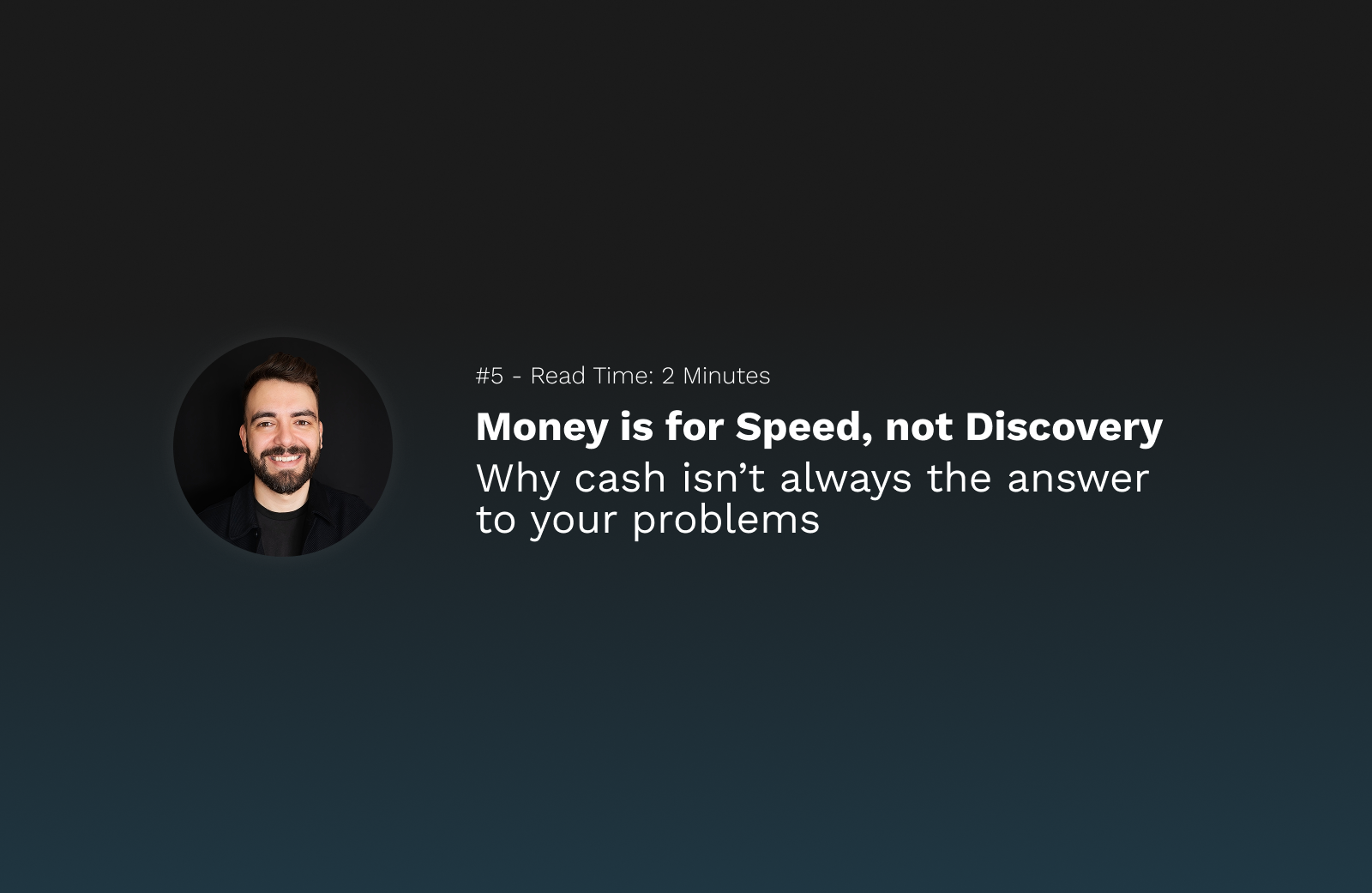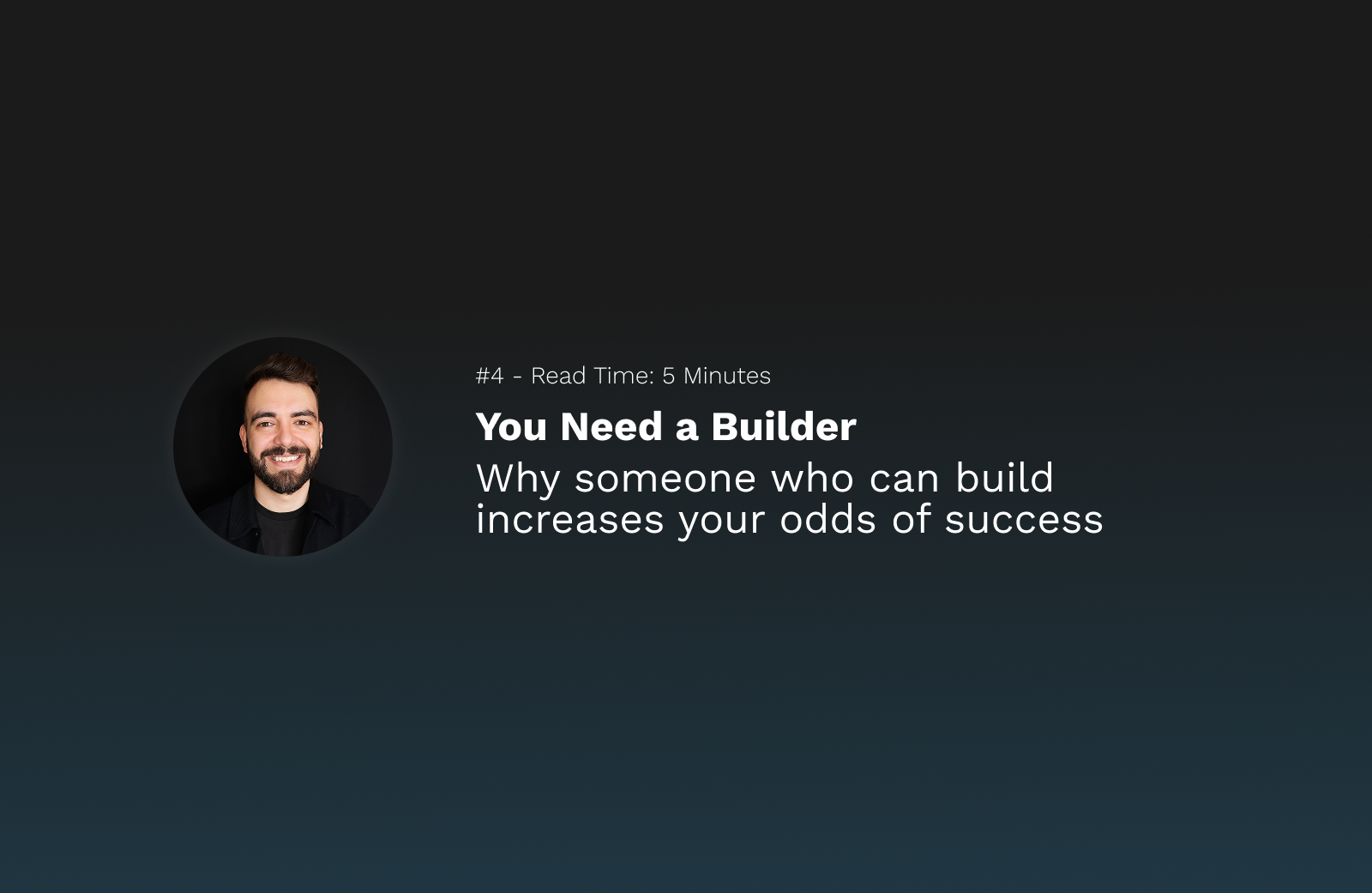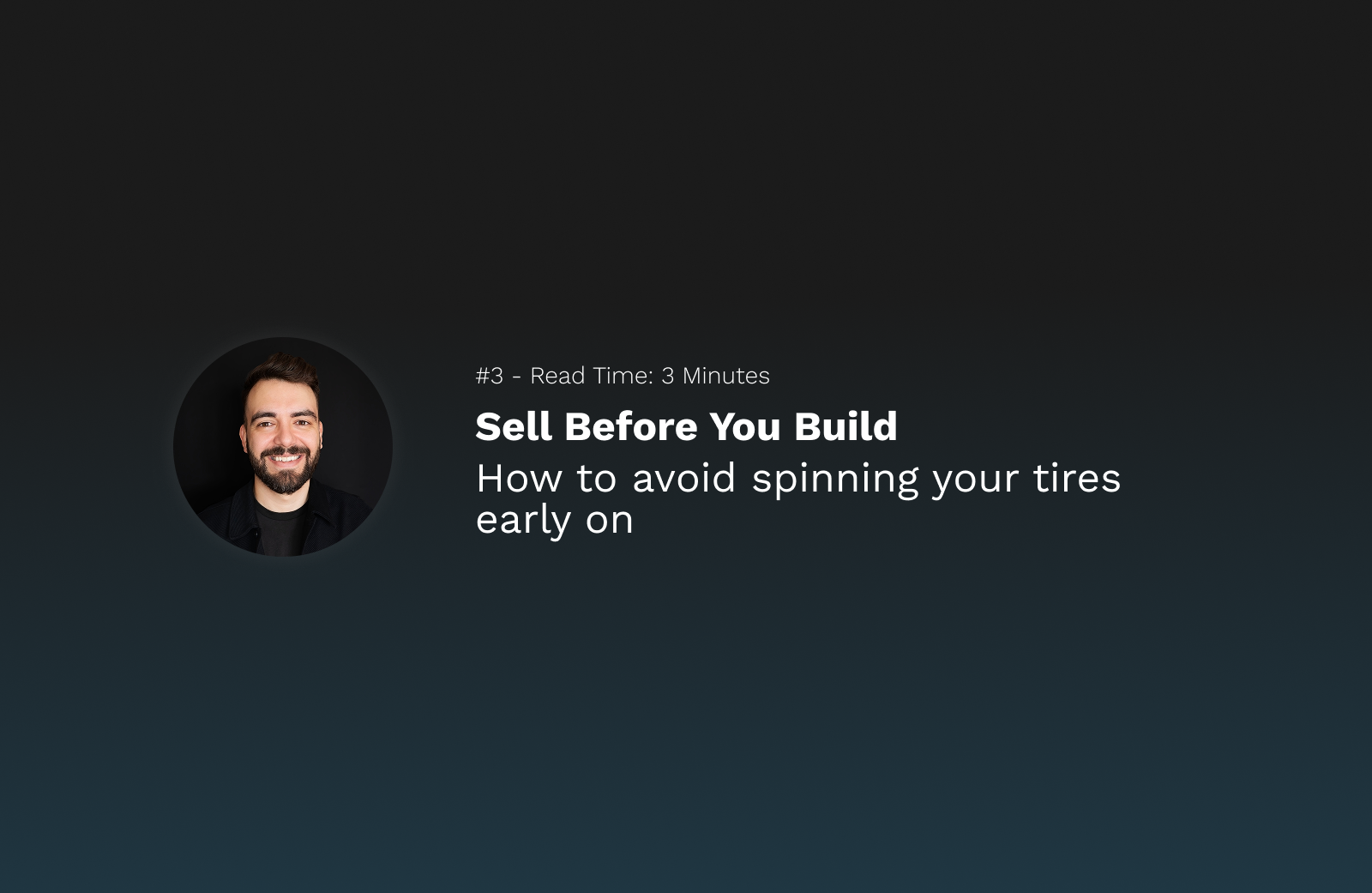Drilling for Oil
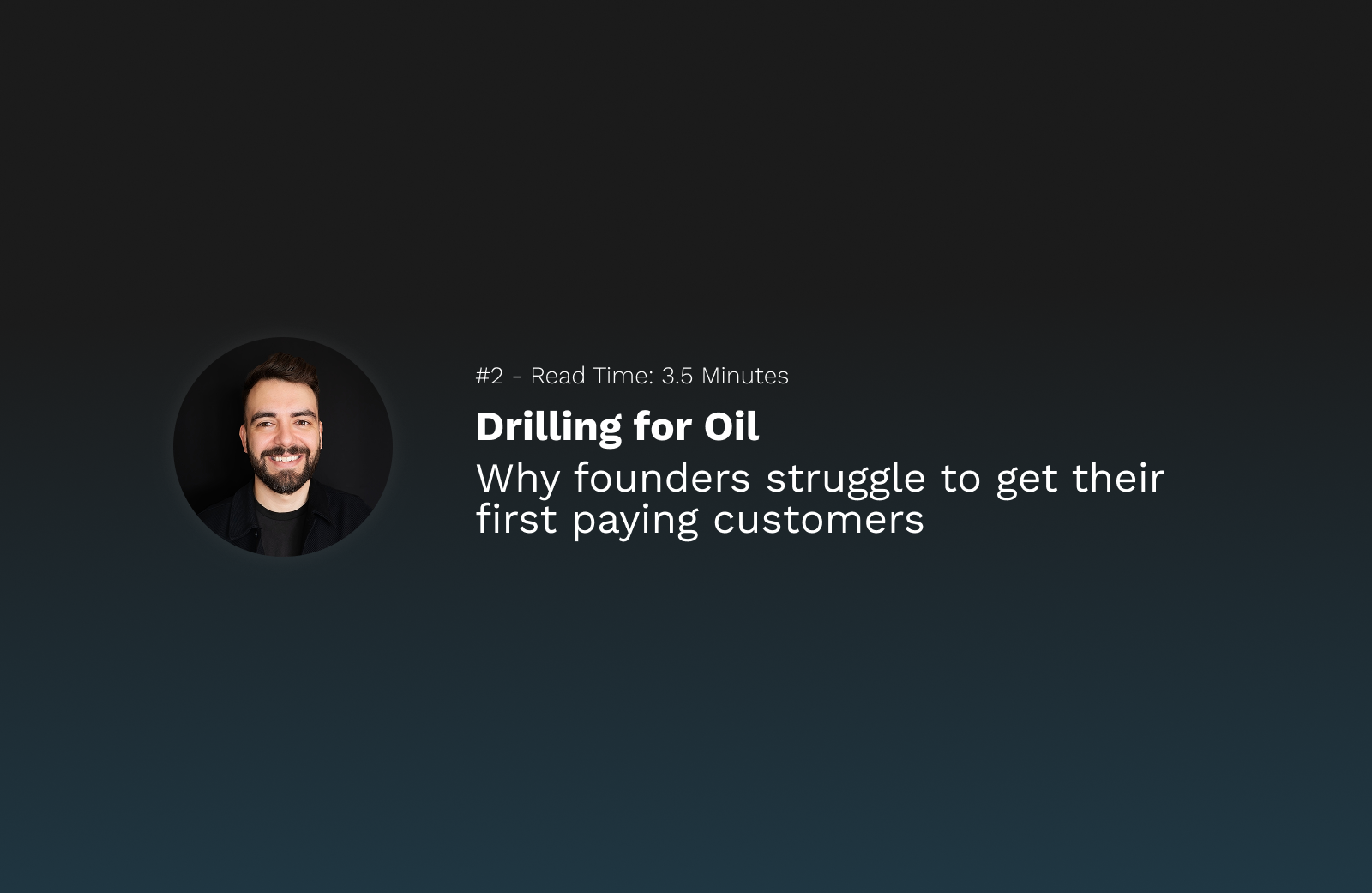
If you are a founder building a new product, you are wrong.
Wrong about something.
Wrong about the market. The features. The marketing channel. The problem.
The question is not if you are right or wrong, it’s how wrong you are (and how you can be less wrong over time).
Beyond Table Stakes
We are taught from a young age that if you work hard and persevere, you will be successful.
Hard work and perseverance are table stakes.
If the goal is to cross the minefield unharmed, you have to walk. Your success is dependent on you avoiding the mines.
Until you have this shift in perspective, you will likely see:
- little to moderate success (what success you have will be hard fought)
- no clarity on why anything you’re doing is working
- no clarity on what to stop doing or what to narrow your focus on
This leads to the stubborn people wasting valuable time and the inexperienced people quitting.
It costs you speed. Pace. Momentum.
You need those things early.
What’s the problem?
Your brain has a superpower.
It can come up with an infinite number of reasons why you are right with little to no evidence.
As someone who’s willing to take the risk to start a company, you’re likely better at this than most people.
It’s a hindrance. It will consistently lead you down the wrong paths.
It is not a tool for today.
It is not a tool for unproven products.
Be glass half full on vision (5-10 years out).
Be glass half empty on everything else.
Where to start?
Knowing you’re wrong is half the battle.
The rest is isolating, experimenting, and collecting data to understand what you are wrong about.
In my experience, teams with less than $1M ARR are wrong about three things:
- What problem they are solving
- Who they are solving it for
- Why solving it is valuable
It just so happens that these are the three ingredients you need to construct an effective sales funnel for unproven products.
The act of finding the answers to these three questions inevitably leads you to $1M ARR.
It is cause and effect.
Building Gets You Nothing
Few founders have the answers to these questions early because they focus on building instead of selling.
You can build without the answers to these questions. You can’t sell without them.
You get these answers by:
- Identifying the core problem you want to solve
- Identifying the core group of people who are most likely to have this problem
- Asking them to pay you for something that does not exist (yet)
If you can’t get someone to pay you for something that doesn’t exist, they don’t have a problem worth solving.
Be a Human, first
In the absence of a proven script, founders will shapeshift into jargon monsters and feature reciting robots.
You’re not at the script stage. You’re at the human stage.
People are not going to buy if you say the right combination of buzzwords.
They will buy if they:
- have the problem you are trying to solve
- think that problem is worth solving (urgently)
- trust you enough to believe you can solve the problem for them
- perceive the cost (and risk) of letting you solve the problem for them to be less than the value they will get if you solve it
You don’t have the data to know what to say or what not to say.
You don’t have the evidence to back up what you’re building.
You don’t have customers to sing your praises.
All you have is your commitment to solving the problem.
You have a version of the world that could exist.
You need to find someone that wants that version of the world to exist badly enough to give you money for the chance of making it a reality.
You’re a Prospector
Before you get your first paying customers you are prospecting.
You are trying to find out if there is oil in the ground beneath your feet.
It’s exploratory.
You are taking samples.
You are looking for signals.
You don’t know if there’s oil - so you should not hire a crew, build a rig, and start drilling.
And if there isn’t oil, you want to move somewhere else and try again.
If there is oil, it will be very clear.
Here’s what it usually looks like:
- Cold outbound (email/DMs) converts and people are willing to take time out of their day to talk to you when you mention the problem
- A large % of people you talk to are interested in seeing a demo/learning more about what you’re building AND book a time/call
- A large % of people who book a time/call actually show up for the demo
- A large % of people who show up for the demo are interested in an early adopter offer by the end of the demo
- A large % of people who are sent an early adopter offer accept it and pay you money
This is true for B2C and B2B (you should be talking to your first 100 customers regardless of your business model).
Here’s what it doesn’t look like:
- Cold outbound doesn’t work - people don’t reply, don’t book calls, and do not want to talk to you about the problem you mention
- People who get on calls don’t want demos, or say they do but don’t actually book a time
- People who get on demo calls say they’re interested in an offer but ghost you when you send it
- No one accepts your early adopter offer (if you even get to this point)
If you are experiencing the latter, there is a high probability that you are:
- Trying to solve a problem that isn’t worth solving
- Talking to the wrong people
But What If I Had Better Messaging/Marketing?
When faced with the uncomfortable reality that the market doesn’t want what they’re selling, founders inevitably ask:
“What if I had better marketing?”
It’s a fair, but misguided question.
Marketing is simply doing one thing (top of funnel sales) at scale.
It is, by definition, less intimate, less personal, less human.
It is detached. It is slow to iterate on.
It is far away from a conversation.
At this stage (pre-$1M ARR), it is drastically less likely to convert than a 1:1 conversation between you (the founder) and them (the customer).
What you are saying, when asking this question, is essentially:
- I can’t convince this person to date me
- If I just had 100,000 people know my name, one of them would date me
It’s not the numbers.
It’s your ability to communicate your value to the person (and their perceived value of you).
It is the same for your product.
If you can’t get one person, you can’t get 100,000.
Sniper rifle - not shotgun.
Get one person.
And if you can’t get one quickly (weeks not months) - move on.
Until next time.
- J

